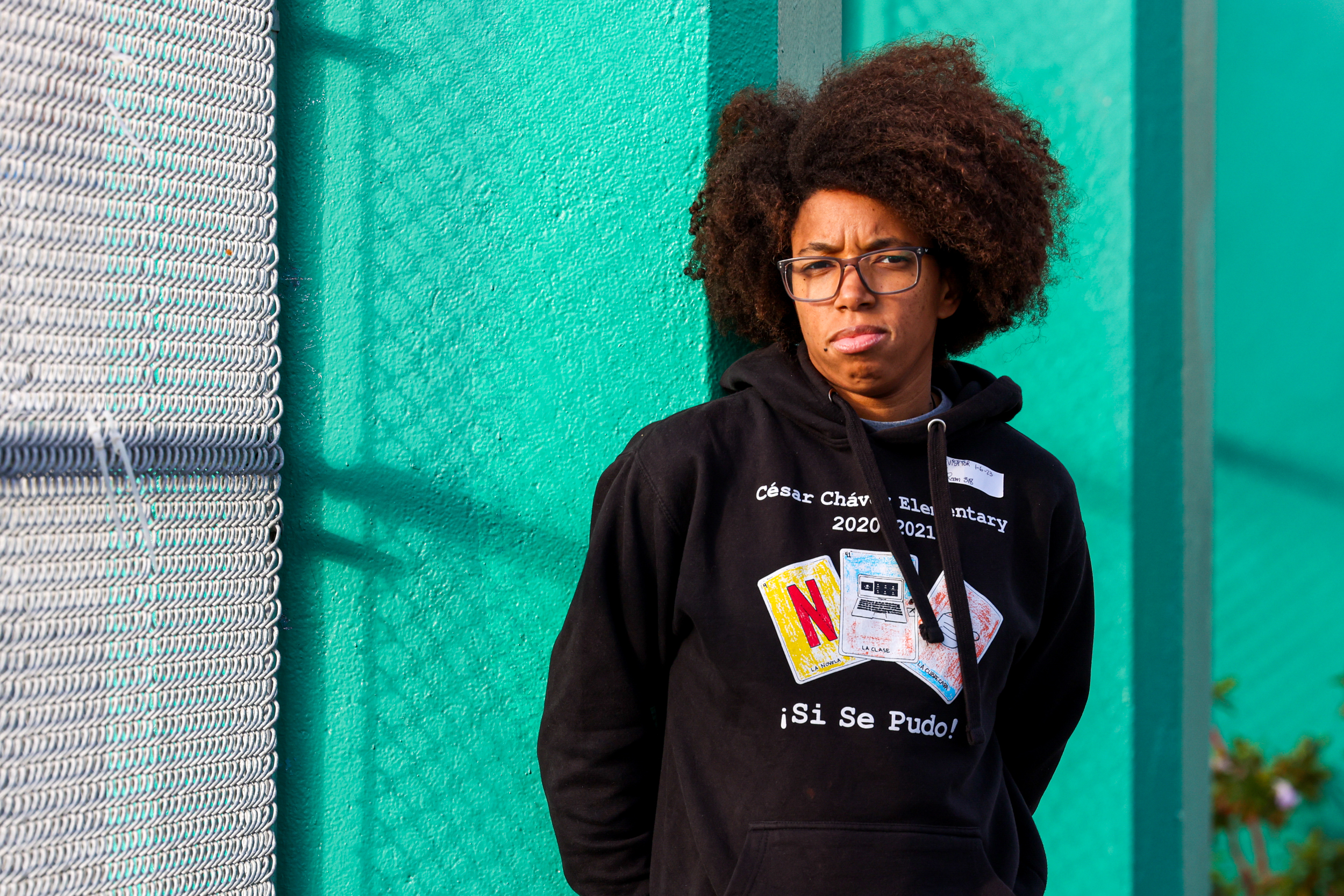When Janaee Cobbs, a Deaf teacher, showed up for work on a recent morning at Cesar Chavez Elementary School, she was surprised to find no interpreters at the ready.
Cobbs, like other Deaf and hard-of-hearing school staff, rely on American Sign Language (ASL) interpreters to communicate on campus and in meetings with parents of Deaf students. So it came as a shock when she learned last Friday, Jan. 6, that she’d have to go without one.
“When I got there, I didn’t know what to do,” Cobbs told The Standard through an interpreter. “I didn’t understand what they were saying. I didn’t know whether we were going to have another interpreter. I can’t do my job without an interpreter.”
As a representative of United Educators of San Francisco and National Black Deaf Advocates, the situation brought back the many battles fought to improve accessibility for Deaf staffers at the San Francisco Unified School District. They feel accessibility needs over the years were often treated as an afterthought.
In the case of the missing interpreters, it was apparently a payment issue—something SFUSD has seen plenty of.
On Jan. 5, Linguabee, one of two firms providing ASL interpretation to San Francisco public schools, emailed Deaf SFUSD employees to inform them that interpreters who had been scheduled to work the rest of the school year would no longer be available. The reason? SFUSD had not paid them what they were owed.
It took until the next afternoon for SFUSD’s personnel department to respond.
“While this is the result not of negligence on HR’s part, but rather a series of complications between departments that has resulted in lack of payment to Linguabee, I am deeply sorry that this is happening and causing understandable consternation,” SFUSD’s Head Human Resources Officer Kristin Bijur wrote in a Jan. 6 email to staff.
Those overdue bills have since been paid, and Linguabee services should be restored before the end of the week, SFUSD spokesperson Laura Dudnick said. Alternative interpretation services have been provided in the meantime, she told The Standard Monday. District staff were informed two days later.
Though Linguabee will return shortly, the lapse comes at a time when interpretation services are harder to come by. Bay Area Communication Access, SFUSD’s other interpretation provider, said the region’s high cost of living, remote work and the Covid pandemic have all fueled the shortage.
“As an interpreting agency, we would agree that things are currently a bit tight for in-person interpreting, due to the same reasons that are affecting a number of other occupations,” a Bay Area Communication Access representative wrote in an email to The Standard.
Linguabee did not respond to a request for comment.
Cobbs said Linguabee lets Deaf clients choose interpreters who work well with them. ASL is not merely English in hand signs and even writing things down to communicate takes extra effort for Deaf people to translate.
Not all interpreters understand or communicate Deaf culture well, Cobbs added, which is why SFUSD should enlist more companies like Linguabee.
“I just hope this is a wake-up call for the district, for the Board of Education,” she said.
